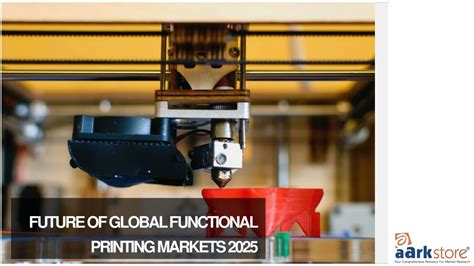MPC (Multi-Party Computation) blockchain technology is revolutionizing the sports industry by enhancing security, transparency, and efficiency in various aspects. From secure data management to streamlining fan engagement and ticketing systems, MPC blockchain offers a cutting-edge solution for modern sports. This technology also opens new avenues for sports collectibles through NFTs, transforms governance and decision-making processes, and empowers athletes with secure digital identities and smart contracts. In this article, we explore how MPC blockchain is shaping the future of sports, the challenges it faces, and its potential to redefine the industry for both athletes and fans alike.
rplblogs.com invites you to delve into this topic thoroughly.
1. Introduction to MPC Blockchain Technology and Its Potential in Sports
MPC (Multi-Party Computation) blockchain technology is a decentralized cryptographic framework that allows multiple parties to jointly compute a function without revealing their private data. In the context of sports, this technology holds tremendous potential by enhancing the security, efficiency, and transparency of processes across the industry. As sports organizations and athletes handle massive amounts of sensitive data, from performance analytics to personal information, the secure nature of MPC blockchain ensures this data is safeguarded from unauthorized access or tampering.
Beyond data security, MPC blockchain presents new opportunities for innovation within the sports sector. It can streamline transactions, create secure fan engagement platforms, and offer unprecedented transparency in areas like ticketing and athlete contracts. Furthermore, through smart contracts and NFTs (non-fungible tokens), MPC blockchain allows for the creation and management of digital sports assets, enabling more efficient governance and fostering a direct connection between athletes and their supporters. As the sports industry continues to evolve, MPC blockchain technology is positioned to play a transformative role in shaping its future.

2. Enhanced Security and Privacy in Sports Data Management
In the sports industry, vast amounts of sensitive data are generated, ranging from athlete performance statistics to fan information and financial transactions. Ensuring the security and privacy of this data is critical, and MPC blockchain technology offers an innovative solution to these challenges. By allowing multiple parties to collaboratively process data without revealing any private information, MPC blockchain enhances the confidentiality of sensitive sports data.
One of the primary benefits of MPC blockchain in sports data management is its ability to secure information against breaches or unauthorized access. With traditional centralized systems, data is more vulnerable to hacking and tampering, whereas MPC blockchain’s decentralized nature distributes data across multiple parties, making it much harder for malicious actors to compromise the system. This guarantees that athlete contracts, medical records, and other personal details are protected from exposure.
Furthermore, MPC blockchain enables secure and transparent sharing of performance data between teams, leagues, and third-party analysts, ensuring privacy while maintaining data integrity. As sports organizations increasingly rely on data-driven insights, the robust security and privacy features of MPC blockchain are essential for building trust and safeguarding critical information.

3. Streamlining Fan Engagement and Ticketing Systems
MPC blockchain technology offers a groundbreaking approach to improving fan engagement and ticketing systems in the sports industry. Traditional ticketing methods are often plagued by issues such as fraud, scalping, and inefficient processes, which can diminish the overall fan experience. With MPC blockchain, ticket sales can be securely processed and verified, reducing the risk of counterfeit tickets and ensuring that fans receive authentic, traceable passes to sporting events.
Through the use of smart contracts, MPC blockchain enables the automation of ticket purchases, transfers, and refunds, providing a seamless experience for fans. These digital contracts ensure that the terms of a ticket sale are executed without the need for intermediaries, reducing costs and making the process more efficient. Additionally, blockchain-based platforms can facilitate real-time engagement between fans and their favorite teams or athletes by offering exclusive digital content, loyalty rewards, or interactive experiences.
By leveraging MPC blockchain, sports organizations can create transparent, secure, and user-friendly ticketing systems, while also enhancing fan loyalty and engagement. The technology’s ability to offer a more personalized and secure experience is revolutionizing how fans interact with their favorite sports and teams.

4. Revolutionizing Sports Collectibles and Memorabilia through NFTs
MPC blockchain technology is driving a revolution in sports collectibles and memorabilia through the use of NFTs (non-fungible tokens). NFTs allow for the creation of unique, verifiable digital assets that represent ownership of specific sports items, such as iconic moments, player cards, or limited-edition merchandise. This digital innovation provides fans with an entirely new way to engage with their favorite sports and athletes, while ensuring the authenticity and rarity of each collectible.
Unlike traditional physical memorabilia, which can be prone to forgery, NFTs are securely stored and verified on the blockchain, providing proof of ownership and origin. Fans can trade or sell their digital collectibles in secure marketplaces, knowing that each item is legitimate and unique. Additionally, athletes and sports organizations can directly interact with fans by issuing exclusive NFTs, fostering a closer connection between them.
The use of NFTs in sports is transforming the way fans collect and interact with memorabilia, offering a modern and secure approach to owning and trading sports-related digital assets.
5. Transforming Sports Governance and Decision-Making Processes
MPC blockchain technology is transforming sports governance by introducing transparency, accountability, and efficiency into decision-making processes. In traditional sports organizations, governance is often centralized, with key decisions made by a small group of stakeholders, which can lead to inefficiencies, delays, and even corruption. MPC blockchain enables a decentralized model where decisions are made collaboratively, ensuring fairness and reducing the risk of bias.
Through the use of smart contracts, MPC blockchain can automate governance processes, such as voting on rules, player transfers, or revenue distribution, ensuring that all stakeholders, including teams, players, and fans, have a say in important decisions. These contracts ensure that actions are taken transparently, based on pre-agreed rules, without the need for intermediaries or lengthy bureaucratic procedures.
The decentralized nature of MPC blockchain also ensures that decisions are recorded on a tamper-proof ledger, making it easier to audit and track decisions over time. This fosters a more inclusive and democratic approach to sports governance, empowering a broader range of participants to contribute to shaping the future of sports while maintaining accountability and transparency.
6. Empowering Athletes through Secure Digital Identities and Smart Contracts
MPC blockchain technology is significantly empowering athletes by providing secure digital identities and leveraging smart contracts. Traditional methods of managing athlete contracts and personal data often involve multiple intermediaries, which can lead to inefficiencies and potential security risks. MPC blockchain addresses these issues by offering a decentralized and secure system for managing athlete identities and transactions.
With secure digital identities on the blockchain, athletes can control their personal and professional information with greater privacy and protection. This secure identity framework ensures that only authorized parties have access to sensitive data, reducing the risk of identity theft and unauthorized use.
Smart contracts further enhance this empowerment by automating and enforcing contractual agreements. These self-executing contracts automatically execute terms once predefined conditions are met, eliminating the need for manual intervention and reducing the likelihood of disputes. Athletes benefit from faster, more transparent transactions, whether dealing with endorsements, performance bonuses, or other agreements. This technological advancement not only simplifies contract management but also ensures that athletes’ rights and interests are upheld efficiently and securely.
7. Addressing Challenges and Future Directions for MPC Blockchain in Sports
Despite the promising benefits of MPC blockchain technology in sports, several challenges must be addressed to fully realize its potential. One significant challenge is the integration of MPC blockchain with existing sports infrastructure. Many organizations operate with legacy systems, and transitioning to a blockchain-based framework requires substantial investment and adaptation. Ensuring compatibility and interoperability between new blockchain systems and traditional platforms is crucial for a smooth implementation.
Another challenge is the scalability of MPC blockchain technology. As sports organizations and fan engagement grow, the blockchain must handle increasing volumes of transactions and data without compromising performance or security. This necessitates ongoing development to enhance blockchain scalability and efficiency.
Additionally, regulatory and legal considerations are vital. As blockchain technology evolves, so do regulations governing its use, and sports organizations must navigate these regulations to ensure compliance.
Looking ahead, future directions include improving blockchain technology’s scalability, enhancing user interfaces, and fostering broader industry adoption. Continued innovation and collaboration will be essential in overcoming these challenges and unlocking the full potential of MPC blockchain in revolutionizing the sports industry.
8. Conclusion
MPC blockchain technology is poised to revolutionize the sports industry by enhancing security, efficiency, and engagement across various facets. From safeguarding sensitive data and streamlining fan interactions to transforming sports collectibles and improving governance, the potential applications of MPC blockchain are extensive and impactful. By providing secure digital identities and automating contracts, athletes gain greater control and protection, while sports organizations benefit from transparent and efficient processes.
Despite its significant advantages, the technology faces challenges such as integration with existing systems, scalability issues, and evolving regulatory landscapes. Addressing these challenges is crucial for the widespread adoption and successful implementation of MPC blockchain in sports.
Looking ahead, continued innovation and adaptation will be key in overcoming these hurdles. As the technology evolves, it will offer even more opportunities to enhance the fan experience, ensure secure transactions, and drive the future of sports. The integration of MPC blockchain represents a transformative shift in how the sports industry operates, promising a more secure, transparent, and engaging future for all stakeholders involved.
rplblogs.com
